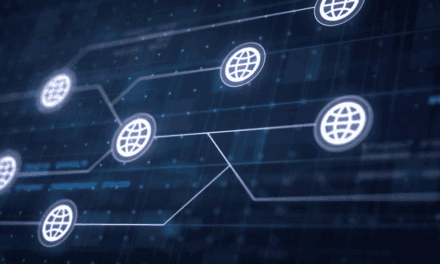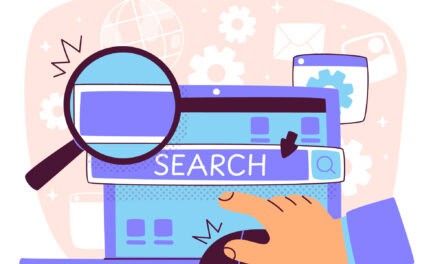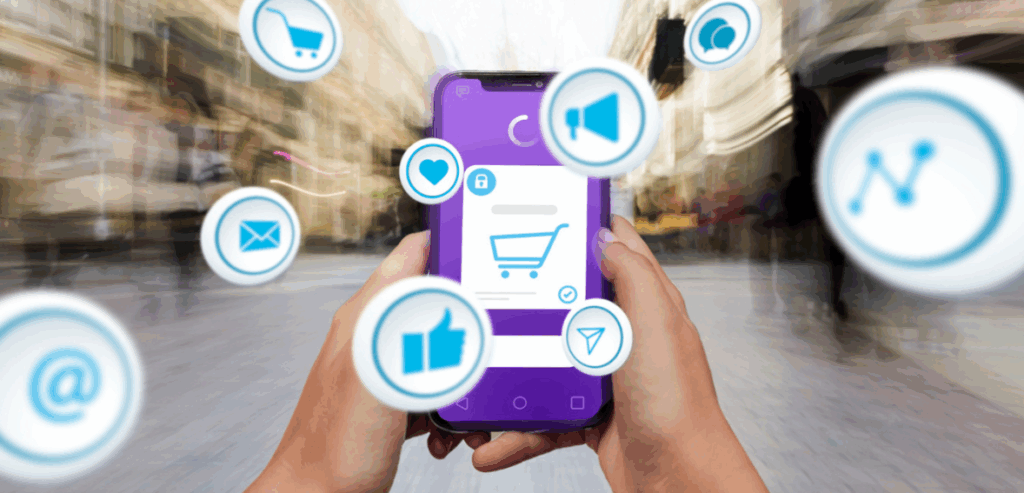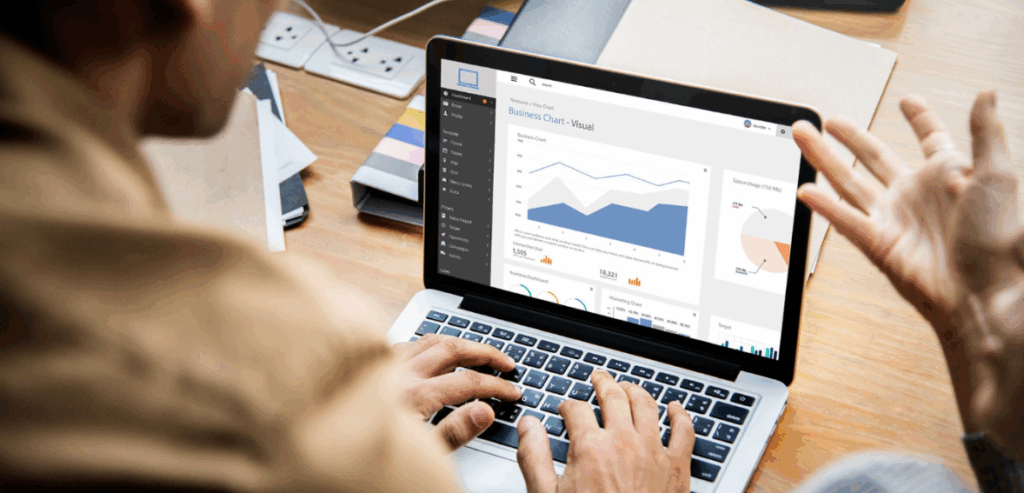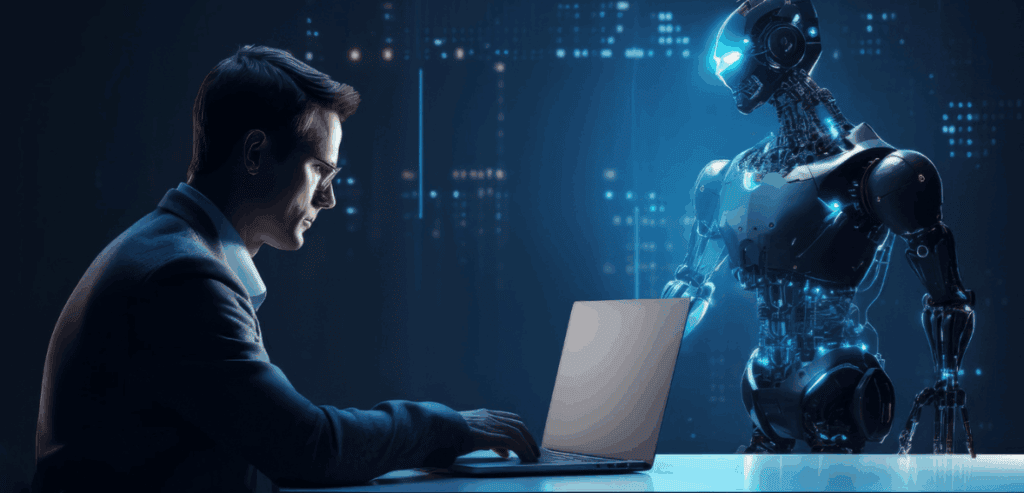Incorporating artificial intelligence into digital marketing is changing the way businesses connect with audiences through Pay-Per-Click and Search Engine Marketing. AI in PPC is crucial in developing more accurate and effective ad campaigns in the current digital environment. PPC and SEM both greatly profit from AI’s ability to automate tasks and provide data-driven insights, with PPC involving advertisers paying for each click on their ad, and SEM featuring a wider approach using paid search to enhance website visibility.
Artificial intelligence in PPC utilizes algorithms based on machine learning to automate a range of tasks, including choosing keywords and overseeing bids and budgets. Using automatic bid adjustments, AI software modifies bids in live situations according to various factors such as user actions, device type, and geographical location. This improves the effectiveness of campaigns and maximizes advertising budgets, guaranteeing that businesses efficiently target the correct audience.
SEM automation, driven by AI, enables marketers to predict audience preferences, personalize ad experiences, and analyze campaign outcomes. For example, platforms like Google Ads use AI-powered tools like Smart Campaigns that simplify ad management and enhance targeting accuracy. This automation allows businesses to respond proactively to trends, a valuable asset in the fast-evolving world of digital advertising.
With AI, businesses can streamline their PPC and SEM strategies, making campaigns smarter and more adaptable to audience behavior. As AI technology continues to advance, its role in optimizing digital marketing will only grow, empowering marketers to achieve higher returns on investment with less manual effort.
Understanding How AI Enhances PPC Campaigns
AI plays an essential role in optimizing Pay-Per-Click campaigns, using data-driven insights and automated processes to enhance efficiency and effectiveness. A primary function of AI in PPC is data analysis. By processing large volumes of data rapidly, AI identifies patterns in user behavior, enabling marketers to target ads more precisely. This level of insight helps campaigns reach the right audiences and improves ad performance, leading to higher click-through rates and conversions.
Automated bidding is another powerful AI feature in PPC. AI algorithms like Google Ads’ Target CPA and Target ROAS allow marketers to set goals, such as maximizing clicks or conversions, while AI dynamically adjusts bids based on real-time performance and market trends. This automation ensures that each bid is strategically placed, optimizing budget allocation without manual input, which is particularly useful for large campaigns. Machine learning and predictive analytics in AI analyze historical data to forecast outcomes, adapting strategies to maximize ROI.
Natural Language Processing, a different type of AI technology, helps place ads by comprehending the subtleties in search queries. This makes sure that advertisements better match user intention, which boosts their relevance. AI-powered PPC strategies revolutionize PPC campaigns by making them more intelligent, flexible, and cost-efficient through automated bidding and ad placements. This automation in SEM doesn’t just decrease the task burden on marketers but also enhances campaign results, transforming AI in PPC into a crucial factor for modern businesses.
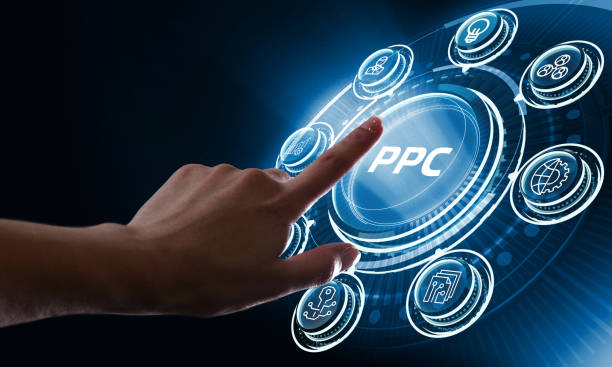
AI-Driven Bidding and Budget Optimization
AI has transformed bidding strategies in PPC campaigns, optimizing bids for cost efficiency and maximizing ROI. Through advanced machine learning algorithms, automated bidding systems analyze vast amounts of real-time data, such as user behavior, time of day, and device type, to make instantaneous bidding adjustments. This process ensures that ads reach the most relevant audience segments at optimal costs, thus maximizing ad spend efficiency without requiring constant manual intervention.
Google’s Smart Bidding, for example, includes strategies like Target CPA (Cost Per Acquisition) and Target ROAS (Return on Ad Spend), which use AI to adapt bids based on a campaign’s specific objectives. Target CPA focuses on generating conversions within a set budget, while Target ROAS aims to achieve a higher revenue return relative to ad spend, ideal for campaigns prioritizing sales or high-value transactions. This AI-driven automation allows businesses to refine budget use, improving overall conversion rates and reducing wasteful spending by eliminating low-potential ad placements.
Automated bidding not only boosts ROI, but also decreases the burden on marketers by automating regular adjustments. AI uses past campaign data to predict the best bid amounts, adjusting in real-time to improve campaign performance at any size. For businesses with large PPC campaigns, this SEM automation is essential for maintaining competitive ad placement and adapting quickly to market shifts.
By implementing AI in PPC for automated bidding and budget optimization, marketers can achieve more efficient and profitable campaigns, allowing them to focus on strategic planning rather than repetitive adjustments. This approach is proving essential in today’s fast-paced digital advertising landscape.
Personalization and Targeting: Reaching the Right Audience
AI in PPC has revolutionized audience targeting by creating highly personalized ad experiences based on user behavior and preferences. One of AI’s key roles in this area is leveraging data analysis and machine learning to identify patterns in user interactions, such as browsing and purchase history, enabling businesses to reach audiences with the most relevant ads.
Techniques like lookalike modeling play a significant role by identifying users who share characteristics with a brand’s best customers, expanding the audience to those more likely to engage or convert. With AI, this process is automatic and far more accurate, using vast datasets to identify these ideal audience segments without the need for manual intervention. This precision targeting results in higher engagement rates and reduced ad spend, as ads are shown only to those who are likely to respond positively.
AI also improves audience segmentation by generating groups in real-time according to behaviors, demographics, and online activities. Google and Facebook utilize AI-driven technology to constantly improve audience targeting, guaranteeing that advertisements are delivered to the correct users at the appropriate moment and on the suitable device. Moreover, predictive analytics can predict user behaviors, facilitating the adjustment of campaigns in real-time to better align with consumer goals.
Furthermore, AI-powered remarketing enables businesses to reconnect with users who have shown previous interest, delivering customized content or offers to re-engage them. This combination of segmentation, lookalike modeling, and predictive analytics powered by AI helps businesses run smarter campaigns that maximize their SEM automation benefits and improve return on investment by targeting the most valuable audiences effectively.
Streamlining Campaign Management with AI Tools
AI-driven tools have transformed PPC campaign management by automating complex tasks and making campaigns more efficient and responsive. Key tools like Google Ads Smart Bidding, Facebook’s Advantage+ Audience, and third-party solutions such as SEMrush, Kenshoo, and Optmyzr use advanced algorithms to handle real-time bidding, budget optimization, and audience segmentation.
One example is Google Ads’ Smart Bidding, which uses machine learning to change bids in response to real-time data like user actions, location, and device type. This bidding strategy, powered by AI, aids businesses in allocating ad budget towards high-potential clicks, improving conversions and ROI without the need for constant manual intervention. The Advantage+ algorithm on Facebook also utilizes machine learning to improve audience targeting, analyzing user interactions to display ads to the most appropriate audiences. This method increases participation by automatically adapting targeting criteria according to real-time campaign outcomes.
These AI-powered PPC tools significantly reduce manual workload. With features that automatically track performance, allocate budgets effectively, and optimize bids, marketers can focus more on strategic planning and creativity rather than daily adjustments. Third-party tools like SEMrush offer comprehensive PPC management capabilities, including keyword research, competitor analysis, and performance reporting, making it easier for teams to maintain high-performing campaigns on multiple platforms.
Analyzing and Optimizing Ad Performance
AI plays a crucial role in monitoring ad performance, enabling marketers to obtain actionable insights that drive campaign improvements. By utilizing advanced algorithms, AI continuously tracks key metrics like click-through rates, conversion rates, and overall engagement, providing a data-driven approach to PPC optimization. Real-time tracking allows marketers to assess an ad’s effectiveness as it runs, facilitating adjustments that can maximize returns without waiting for a campaign to conclude.
A significant advantage of AI in PPC is found in A/B testing. AI-driven A/B testing tools examine different versions of ad components, like text, images, and CTA buttons, to identify the most effective combination for the target audience. This active method allows AI to automate testing, reallocating resources to top-performing versions and cutting down on manual work. In addition, AI has the ability to forecast the potential effectiveness of different advertisement versions based on past data, enabling marketers to make prompt and well-informed choices.
AI also enhances CTR optimization by tracking user interactions and adjusting ad strategies based on engagement patterns. For example, if certain keywords or visuals attract more clicks, AI can focus on these elements, improving the ad’s relevance to the target audience. Conversion tracking is similarly streamlined, with AI providing insights into user behavior post-click, such as purchase decisions or sign-ups, helping marketers understand the factors driving conversions.
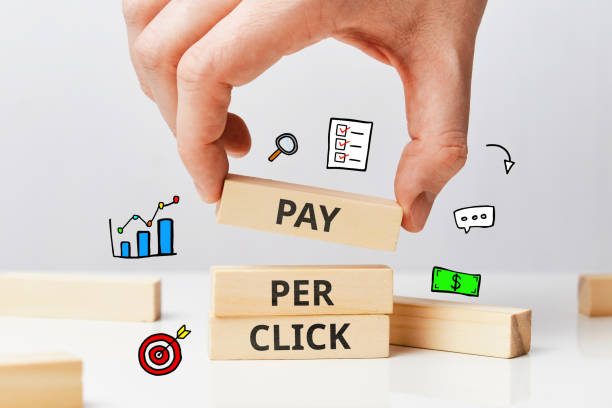
Future of AI in PPC: Trends and Innovations to Watch
As AI continues to evolve, it is transforming the future of PPC advertising, enabling advertisers to harness new trends and optimize campaign effectiveness. One significant trend is the integration of voice search optimization. With the increasing popularity of voice-activated assistants like Alexa and Google Assistant, PPC strategies are adapting to accommodate conversational, long-tail keywords that align with natural speech. AI-driven tools help tailor ad content to meet these queries, making ads more accessible for users who rely on voice search.
AI is improving PPC effectiveness in visual search, which is an exciting area of development. Visual search enables users to conduct searches using images, offering brands the chance to be seen in search results when users look for products using photos, a useful tool in industries such as e-commerce and fashion. As this trend continues to increase, AI’s ability to identify objects in images will become more crucial for optimizing PPC campaigns.
AI also brings advanced predictive analytics to PPC, using machine learning to analyze user data and anticipate future behaviors. This allows advertisers to refine bids, target audiences more precisely, and improve conversion rates. Tools like Google’s Smart Bidding employ AI to make real-time adjustments, helping brands maximize return on ad spend and improve engagement.
Looking ahead, AI in PPC will continue to drive deeper personalization and more strategic targeting, making SEM automation more robust and empowering advertisers to reach audiences with unprecedented precision.
Conclusion
AI is changing PPC by automating challenging tasks, improving targeting accuracy, and optimizing bids, assisting companies in achieving improved results with reduced manual work. Incorporating artificial intelligence tools is crucial for businesses to remain competitive in digital advertising, enabling them to efficiently reach audiences and maximize their ROI.


